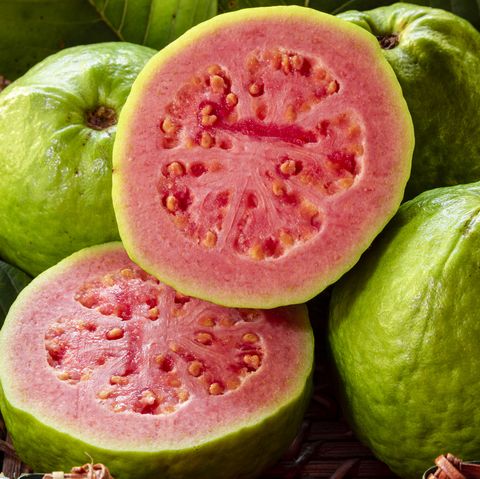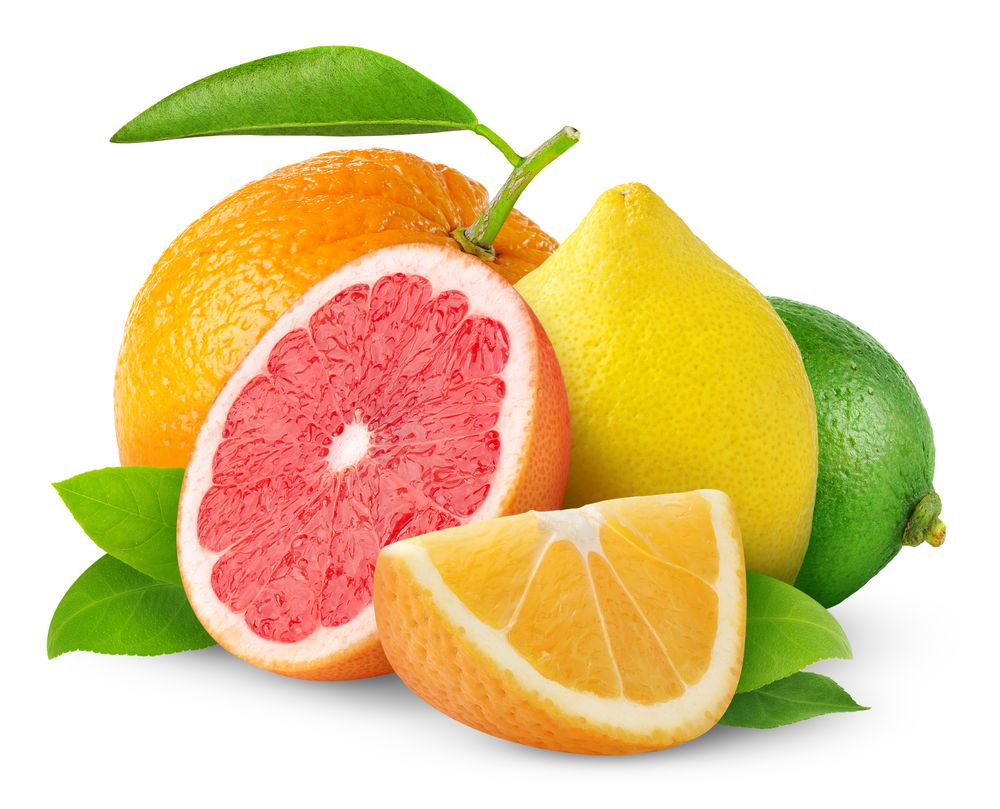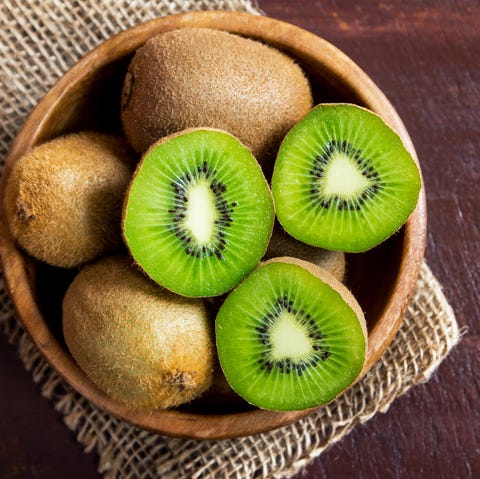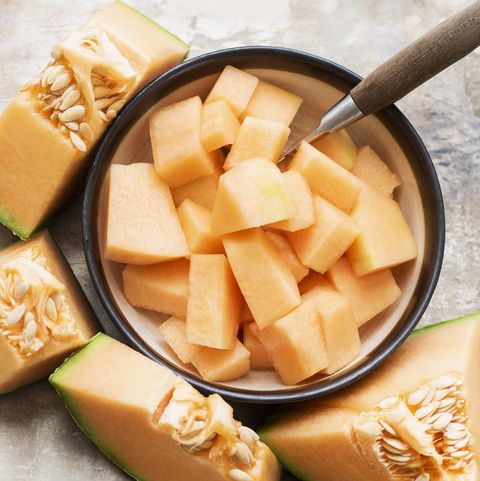The vitamin C family of nutrients includes a variety of substances, including ascorbic acid (also called L-ascorbic acid), dehydroascorbic acid, and various salts. Vitamin C is essential for growth and health in humans and other animals. Vitamin C deficiency causes scurvy in humans, guinea pigs, and some other mammals. Other animals either do not require vitamin C or can produce it in their bodies from glucose.
Vitamin C is required for the maintenance of normal connective tissues; an impaired collagen synthesis leads to defective wound healing, scurvy symptoms include bleeding gums, poor wound healing and bruising or bleeding easily. The human body does not store vitamin C; so consuming it daily is important.

Orange
Oranges are a rich source of vitamin C and are also good sources of folate, potassium, and fiber. Oranges can be eaten raw as a snack or in salads, or added to smoothies and juices.
Grapefruit
Grapefruits are a good source of vitamin C and contain more than 70 other nutrients such as potassium, magnesium, calcium, phosphorus and vitamins A, B1 (thiamin), B2 (riboflavin), B3 (niacin), B6 (pyridoxine), B9 (folic acid) and C. Grapefruit can be eaten raw (chopped into wedges) or cooked into sauces for fish or chicken dishes.
Kiwi fruit
Kiwi fruit is one of the best sources of vitamin C among fruits and vegetables. They contain more than 20 different types of phytochemicals that may help reduce the risk of cancer by preventing cell damage from free radicals. Kiwis can be eaten fresh as is or used as an ingredient in pies, cakes and smoothies.
Vitamin C is the most widely used nutritional supplement in the world. It is an essential nutrient that helps our body to make collagen, which keeps our skin, gums and blood vessels healthy. Vitamin C is also an antioxidant that protects cells against damage caused by free radicals.
Vitamin C sources include citrus fruits, berries, tomatoes and green vegetables such as spinach and broccoli. Fruits are good sources of vitamin C but they are also high in calories so it’s better to eat them in moderation.
Here are some fruits with vitamin C:
Vitamin C is known as a water-soluble vitamin and one of the most important nutrients your body needs. The recommended daily intake of vitamin C is 75 to 90 milligrams for adults.
Vitamin C is involved in many essential functions in your body. It helps the body absorb iron, supports the immune system and keeps skin healthy by building collagen and promoting wound healing. It has antioxidant properties that fight cell damage caused by free radicals. Vitamin C also plays an important role in collagen production and in the formation of scar tissue during wound healing.
When you are dieting or trying to lose weight, it’s important that you eat foods with vitamin C every day to help keep your immune system strong so you don’t get sick from viruses or bacteria that may be present in the environment around you. If you do get sick, your body will use up its store of vitamin C faster than usual, so it’s critical to make sure you have enough vitamin C stored up in your body so you don’t run out when you need it most!
The following list shows fruits that contain vitamin C:
Apple (1 medium) – 85 mg
Aubergine (1 cup) – 26 mg
Banana (1 medium) – 25 mg
Blackcurrant (100g) – 41 mg
Blueberry (100g) – 99 mg*
Cherry (1 cup) – 112 mg*
Citrus fruit – Orange, Lemon, Lime, Grapefruit etc. (1 medium fruit) – 52-67 mg*
Cranberries (100g) – 61-73 mg*
Elderberries (100g) – 32-47 mg*
Grapefruit (1/2 fruit) – 36-40 mg*
Honeydew melon (1/2 fruit) – 14-50mg*

Kiwi fruit (1 medium fruit) – 28mg*
Lemon juice (2 tablespoons) + 1 teaspoon sugar/honey = 50mg Vitamin C*
The most common sources of vitamin C are citrus fruits, but it is also found in many other fruits and vegetables, including kiwifruit, grapefruit, strawberries, tomatoes and potatoes. Vitamin C is water-soluble, so the body does not store it.
Vitamin C is needed for the synthesis of collagen, which maintains the integrity of blood vessels, bones and other connective tissues. It is also necessary for the growth and repair of tissues throughout the body.
Vitamin C helps protect cells from oxidative damage by free radicals. It also works as an antioxidant by neutralising these free radicals before they can damage cells.
Dry fruits with vitamin c
Dry fruits are very popular and easy to carry. Dry fruits are rich in fiber, vitamins, and minerals. They have a high concentration of antioxidants that help in maintaining good health.
These are some of the best dry fruits with vitamin C:
Goji Berries – These berries are very popular in China and used in many recipes. They have a tangy taste and can be eaten raw or cooked. Goji Berries provide a wide range of nutrients including vitamin A, E, zinc and iron. They also contain beta carotene, which is converted into vitamin A by the body. The best part about these berries is that they can be eaten during any season due to their long shelf life.
Dates – Dates are known for their medicinal properties as they were used as medicines by ancient civilizations like Babylonians, Egyptians and Romans. Dates contain high levels of iron which helps in boosting immunity as well as boosts energy levels by providing quick source of carbohydrates to the body during physical activities like hiking or trekking etc. Apart from iron, dates also contain calcium which is essential for healthy bones, teeth and muscles along with potassium which helps in controlling blood pressure levels
Vitamin C is a water-soluble vitamin that is needed for many of the body’s functions. It helps wounds heal, forms scar tissue and supports the immune system. Vitamin C is also needed to make certain hormones, such as estrogen and cortisol, which regulate blood pressure and help fight stress.

Vitamin C is found in many fruits and vegetables, including oranges, grapefruits, strawberries and broccoli. A variety of dried fruits are also good sources of vitamin C.
A 100-gram serving of dried figs provides about 80 milligrams (mg) of vitamin C.
A 100-gram serving of prunes provides about 60 mg of vitamin C.
A 100-gram serving of apricots provides about 40 mg of vitamin C.
A 100-gram serving of peaches provides about 25 mg of vitamin C.
1. Gooseberry
A single cup of gooseberries contains 30mg of Vitamin C, which is more than 100% of the daily recommended intake. Gooseberries are also rich in iron and have anti-inflammatory properties.
2. Kiwi
One kiwi fruit provides 100% of the daily recommended intake of Vitamin C, along with potassium, copper, vitamin E and other vitamins. They are also rich in antioxidants and have anti-inflammatory properties.
3. Guava
Guavas contain 20mg of Vitamin C per 100g (or 1 cup), which is more than 100% of the daily recommended intake (DRI). They also contain significant amounts of vitamin A, thiamine and niacin among others.
4. Papaya
Papaya contains 20mg of Vitamin C per 100g (or 1 cup), which is more than 100% of the daily recommended intake (DRI). It’s also rich in folate, potassium and calcium among others
1.Almonds

Almonds are the best source of vitamin C, containing 8 milligrams in just a quarter cup. Almonds also contain high amounts of vitamin E, which helps protect your cells from damage and promotes healing.
2.Apricots
Apricots are one of the most popular dried fruits on the market today. They are sweet and delicious and provide many health benefits to those who eat them regularly. Apricots provide a good source of fiber, potassium, calcium and iron. They also contain vitamin A, C and E as well as folate, magnesium and zinc.
3.Figs
Figs make for one of the best dried fruits around due to their unique flavor profile and nutritional value. Figs provide an excellent source of fiber, potassium, calcium and iron as well as vitamins A, B6 and C along with copper, manganese and zinc.
4.Prunes
Prunes are another great dried fruit option because they are loaded with fiber which helps lower cholesterol levels in your body by pulling bad cholesterol out of your bloodstream so that it can be expelled from your body naturally through urination rather than having it build up in your arteries causing blockages that lead to heart attacks or strokes
The vitamin C content of fruits is dependent on the level of acidity. The higher the acidity, the more vitamin C present in the fruit. Vitamin C is also known as ascorbic acid and is a water-soluble vitamin needed for normal growth, development and repair of body tissues. It is also essential for immune function and the reduction of tiredness and fatigue.
The daily recommended intake of vitamin C varies from 60mg to 90mg per day depending on age, sex and lifestyle factors such as smoking and stress.
Vitamin C can be found in fruits such as:
Oranges (Mandarins)
Grapefruit (Pink Grapefruit)
Kiwi Fruit
Red Grapes (Green Grapes)
Pineapple (Cantaloupes)
Apricots (Nectarines)
Strawberries
Red/Green Peppers.